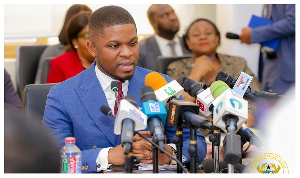Sunyani, July 28, GNA - A two-day consultative workshop aimed at developing an annual programme of work for 2009 that would be used to curb the spread of HIV/AIDS in the Ashanti and Brong-Ahafo regions has been held for some stakeholders from the two regions. The workshop, which was organised by the Ghana AIDS Commission, attracted participants from the two regions as well as representatives of some institutions such as the Ghana Education Service, district assemblies, chieftaincy institutions among other organisations. As part of the process, the Ghana AIDS Commission, working with its district and regional stakeholders will from the consent and consultations from its stakeholders assess gaps, challenges and opportunities in the current national response to the scourge.
Speaking on "HIV and AIDS, Global, Regional and National Experience", Dr. Sylvia J. Anie, Director-Policy and Planning, Ghana AIDS Commission, said according to UNAIDS Report about 33.2million people are living with HIV in 2007 in the world, while an estimated 2.5million adults and children are newly infected with the virus. She said only sub-Saharan Africa continued to bear the brunt of the global epidemic the most with two-thirds(68 per cent) of all adults and children being infected with HIV globally, whilst one-third(32 per cent) of all people with HIV globally lived in southern Africa adding 32 per cent of all deaths due to AIDS in 2006 occurred there.
On Ghana, she said the national prevalence rate stands at 1.9 per cent with the ante-natal care rate at 2.6 per cent. She said only seven per cent of Ghanaians know their HIV status and asked people to avail themselves for testing, promote disclosure to partners and advised people to desist from risky sexual behaviours. Dr. Anie further said issues such as addressing vulnerability of women, achieving behaviour change at all levels, reducing stigma and discrimination, increasing coverage of anti-retroviral therapy and nutrition posed a great challenge to the commission. The rest are community support for people with HIV/AIDS, private sector involvement, political will, sustainability of drugs, patient tracking and continued financial support. Speaking on "Budgetary and Resource Considerations", Mr. Anthony Boateng, Accounts Manager, Ghana AIDS Commission, said five to six million dollars have so far been spent by organisations who are involved in the crusade against the virus.
Health News of Monday, 28 July 2008
Source: GNA












